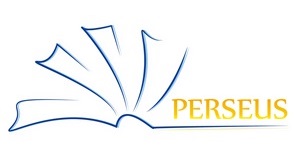 PERSEUS, which stands for “Promoting Excellence & Recognition Seal of European Aerospace UniversitieS”, successfully held its Kick-off Meeting on December 9th 2014 at the Department of Aerospace Science and Technology, Politecnico di Milano, Italy. The PERSEUS Coordination and Support Action, funded by the EC’s Horizon2020 Research & Innovation Programme, aims at firstly defining the evolving skill needs of the European aviation sector and subsequently at formulating strategic
recommendations and corrective measures for the improvement and harmonization of the content of the curricula for aviation engineers towards the ultimate creation of an integrated European aviation education system, based on sound quality criteria capable of supporting the continuous improvement of the educational system in the sector.
For more information please visit the PERSEUS project website.
PERSEUS, which stands for “Promoting Excellence & Recognition Seal of European Aerospace UniversitieS”, successfully held its Kick-off Meeting on December 9th 2014 at the Department of Aerospace Science and Technology, Politecnico di Milano, Italy. The PERSEUS Coordination and Support Action, funded by the EC’s Horizon2020 Research & Innovation Programme, aims at firstly defining the evolving skill needs of the European aviation sector and subsequently at formulating strategic
recommendations and corrective measures for the improvement and harmonization of the content of the curricula for aviation engineers towards the ultimate creation of an integrated European aviation education system, based on sound quality criteria capable of supporting the continuous improvement of the educational system in the sector.
For more information please visit the PERSEUS project website.
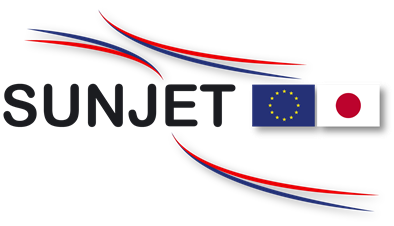 SUNJET II (SUstainable Network for Japan-Europe aerospace research and Technology cooperation II) initiated its activities with a very successful Europe-Japan Symposium on "Electrical Technologies for the Aviation of the Future". The two day symposium was held on 26-27 March 2015 in Tokyo and was hosted by the Delegation of the European Union to Japan. The symposium focused on the current status of the European and Japanese future trends of the electrical technologies for the aviation and gathered around 180 participants. A number of excellent presentations, which will soon be available on the SUNJET II website, were given from the most important European and Japanese stakeholders.
SUNJET II (SUstainable Network for Japan-Europe aerospace research and Technology cooperation II) initiated its activities with a very successful Europe-Japan Symposium on "Electrical Technologies for the Aviation of the Future". The two day symposium was held on 26-27 March 2015 in Tokyo and was hosted by the Delegation of the European Union to Japan. The symposium focused on the current status of the European and Japanese future trends of the electrical technologies for the aviation and gathered around 180 participants. A number of excellent presentations, which will soon be available on the SUNJET II website, were given from the most important European and Japanese stakeholders.
SUNJET II is a support action funded by the European Commission, aiming at enhancing the relations between EU and Japan in research and technology activities related to aviation. SUNJET II is expected to open new application domains for future aeronautics EU-Japan cooperation agreements, aiming at EU-Japan compatibility, better interfacing and paving the road for common regulations, rules and procedures as well as the use of interfaced or common subsystems, equipment and tools.
More information will soon be available at the SUNJET II website.
 With 1,5 years of operations under its belt, the CATER Coordination and Support Action has reached several achievements. A dedicated Door-to-Door (D2D) model in daily journey has been established, thereby creating a common language and understanding for the theme of time efficiency. Moreover, through a very comprehensive analysis, the most relevant Research and Innovation domains connected to time efficiency have been found and have accordingly defined an R&I framework.
The developed Assessment Framework has been utilized to assess past and running (FP6 &FP7) EU-funded projects (63 so far), and leveraged to identify future evolutionary needs and opportunities.
With 1,5 years of operations under its belt, the CATER Coordination and Support Action has reached several achievements. A dedicated Door-to-Door (D2D) model in daily journey has been established, thereby creating a common language and understanding for the theme of time efficiency. Moreover, through a very comprehensive analysis, the most relevant Research and Innovation domains connected to time efficiency have been found and have accordingly defined an R&I framework.
The developed Assessment Framework has been utilized to assess past and running (FP6 &FP7) EU-funded projects (63 so far), and leveraged to identify future evolutionary needs and opportunities.
Furthermore, an online expert consultation survey on R&I issues in Time efficiency has been launched, aiming to accumulate the viewpoint, expertise and valuable insight of the main R&I players and aviation stakeholders. If you wish to participate in our consultation campaign, please fill-in the CATER questionnaire here.
The process is very simple and should not take you more than 10 minutes to complete. Additionally, the CASK web-platform –a smart and innovative instrument to search for everything related to the world of travel efficiency- has been released and made accessible to the wide audience, to turn it into a proactive CATER Community.
You can register and become part of the CATER R&I Community here. Also, you can join our LinkedIn Group here.
Finally, the 2nd CATER e-book is now available online.

Approaching its final stage, the Promo – Air project is organizing its final Workshop that will take place on April 23rd 2015, in Brussels, Belgium. The objectives of this event are to inform the aeronautical stakeholders about the achievements of the Promo-Air initiative, present the lessons learned from the process of getting in contact with European high-school students and identify a roadmap towards additional actions and policies required for further stimulating young Europeans towards this aim.
The aforementioned action is combined with the organization of the European Aeronautics Science Week. In this event, high-school students from all over Europe have the opportunity to visit Universities of their local societies and explore the fascinating world of Aeronautics through the produced by Promo-Air educational material. This initiative is expected to contribute to the raising of awareness of young Europeans in studies related to Aeronautics and in the same time to link European high schools with Universities dealing with aeronautical research. In parallel, a pan-European student quiz competition has been settled, the winner of which will be offered an all-paid visit to Airbus Assembly Line, in France generously sponsored by Airbus S.A.S. and EASN Association as well.
For more information on the Promo-Air project, please visit the promo-air website.
 Having completed its project duration, HIKARI held its final meeting from the 14th to the 15th of January 2014 in Suresnes, France. During this two day meeting, the very positive outputs achieved were presented and received enthusiastically by participants. This final meeting closed a successful period of project activities, yielding constructive feedback, which concluded that there is still room for further research on the crucial field of High Speed Transport (HST).
In the same time, the inclusion of a TV documentary in the Euronews channel has been produced, with regards to the research performed within HIKARI. The aim was to create a video, with which HST will gain awareness in in our daily life, allowing us to conceive it as a feasible scenario for our future by giving us the opportunity for example to fly from Paris to Tokyo in less than three hours! This TV documentary was aired in the FUTURIS programme in 13 different languages and reached 400 million households in 155 countries.
For viewing the TV Clip and the respective article please follow this link.
Having completed its project duration, HIKARI held its final meeting from the 14th to the 15th of January 2014 in Suresnes, France. During this two day meeting, the very positive outputs achieved were presented and received enthusiastically by participants. This final meeting closed a successful period of project activities, yielding constructive feedback, which concluded that there is still room for further research on the crucial field of High Speed Transport (HST).
In the same time, the inclusion of a TV documentary in the Euronews channel has been produced, with regards to the research performed within HIKARI. The aim was to create a video, with which HST will gain awareness in in our daily life, allowing us to conceive it as a feasible scenario for our future by giving us the opportunity for example to fly from Paris to Tokyo in less than three hours! This TV documentary was aired in the FUTURIS programme in 13 different languages and reached 400 million households in 155 countries.
For viewing the TV Clip and the respective article please follow this link.
For more information visit the HIKARI project website.
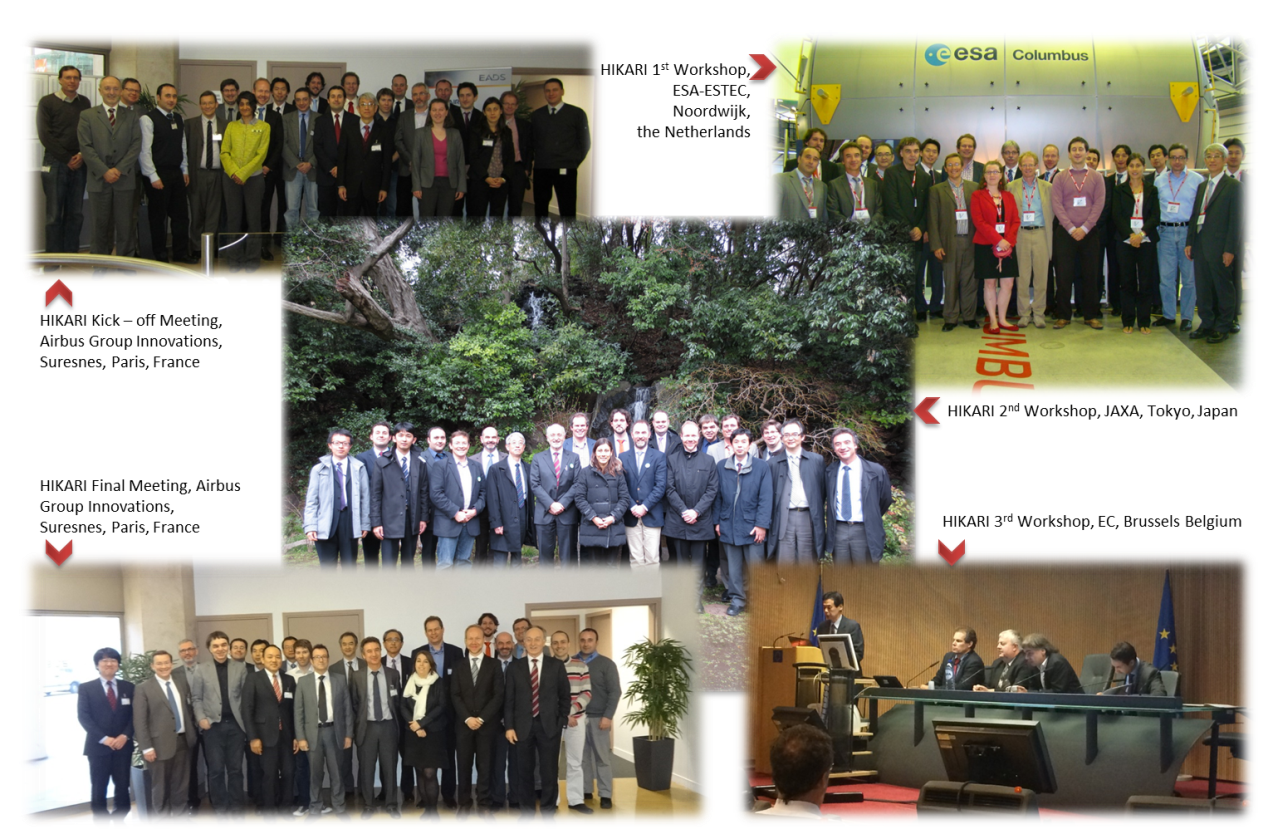
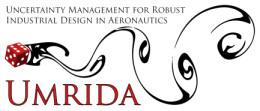 The UMRIDA project aims at the improvement of Uncertainty Quantification (UQ) methods towards industrial readiness, focused on handling a large number of uncertainties (including geometrical ones), epistemic uncertainties, analysis of input uncertainties and methods for defining tolerances. The proposed methods are being validated and evaluated against selected test cases, towards the development of the UMRIDA Innovative database for UQ and Robust Design Management (RDM). Preliminary UQ results have been achieved for the Rotor 37 and the RAE2822 airfoil challenges, by taking into account a large number of
geometric and operational uncertainties. The results obtained will be presented in the upcoming 1rst UMRIDA Workshop on Uncertainty Quantification. In the second half of the project, robust design formulations will be developed and applied to other test cases, aiming to achieve results in reasonable time, by combining efficient UQ methods and existing optimization methods.
For more information please visit the UMRIDA project website.
The UMRIDA project aims at the improvement of Uncertainty Quantification (UQ) methods towards industrial readiness, focused on handling a large number of uncertainties (including geometrical ones), epistemic uncertainties, analysis of input uncertainties and methods for defining tolerances. The proposed methods are being validated and evaluated against selected test cases, towards the development of the UMRIDA Innovative database for UQ and Robust Design Management (RDM). Preliminary UQ results have been achieved for the Rotor 37 and the RAE2822 airfoil challenges, by taking into account a large number of
geometric and operational uncertainties. The results obtained will be presented in the upcoming 1rst UMRIDA Workshop on Uncertainty Quantification. In the second half of the project, robust design formulations will be developed and applied to other test cases, aiming to achieve results in reasonable time, by combining efficient UQ methods and existing optimization methods.
For more information please visit the UMRIDA project website.
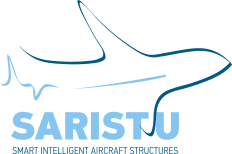 SARISTU has completed the first half of its final year and is on the road to its Final Conference and Meeting to be held in May 2015 in Moscow, Russia. Some of the key highlights of this period include the delivery of the completed 5X4m Door Surround Structure with 584 co-bonded sensors from Invent to DLR’s Stade facility. Furthermore, the static test of the Enhanced Adaptive Droop Nose Ground Test Demonstrator successfully took place at VZLU.
SARISTU has completed the first half of its final year and is on the road to its Final Conference and Meeting to be held in May 2015 in Moscow, Russia. Some of the key highlights of this period include the delivery of the completed 5X4m Door Surround Structure with 584 co-bonded sensors from Invent to DLR’s Stade facility. Furthermore, the static test of the Enhanced Adaptive Droop Nose Ground Test Demonstrator successfully took place at VZLU.
To top it all, the SARISTU Wind Tunnel Demonstrator was fully assembled, with system installation completed and performed its first flight on board a cargo aircraft to Moscow for Wind Tunnel Testing. In a nutshell, the overall progress is meeting and in individual cases exceeding expectations through additional test campaigns regarding Nanocomposites and the initial assessment of multi-SHM equipped test specimen. This is also highlighted by the increased visibility and awareness of the project.
For more information please visit the SARISTU project website.
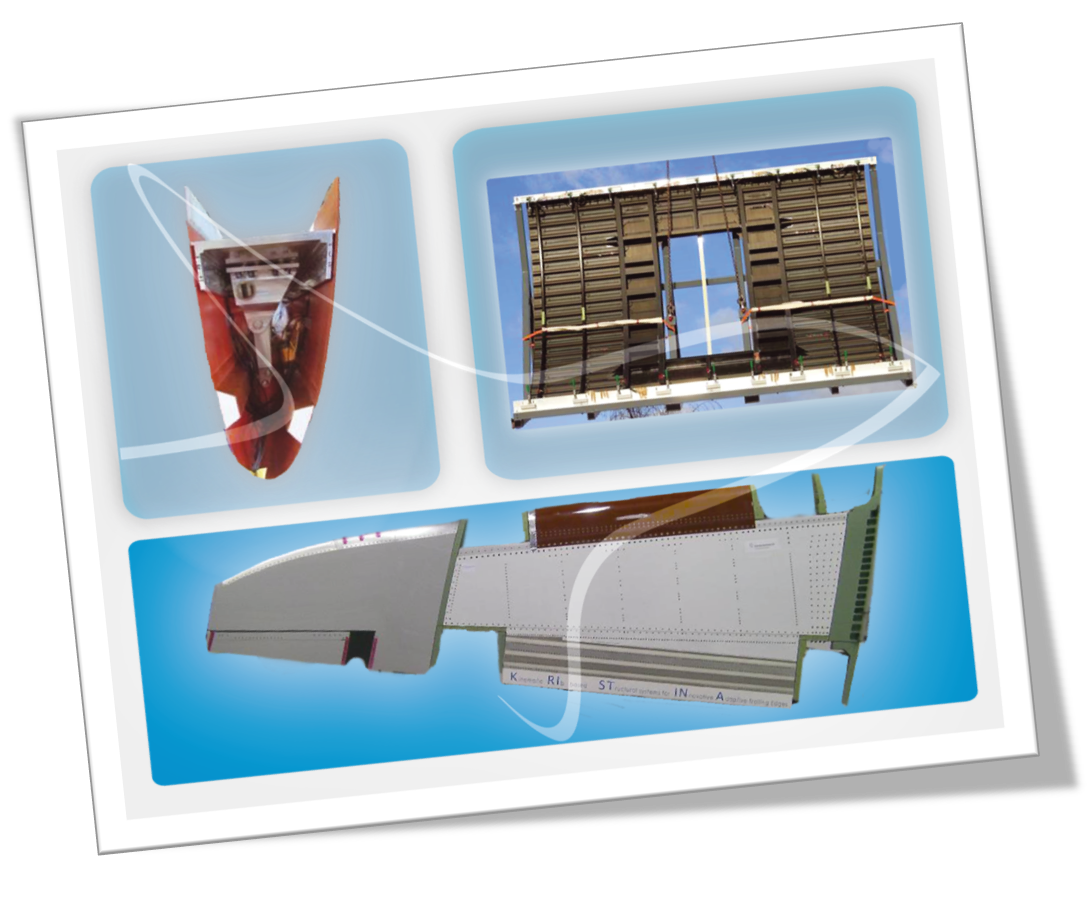
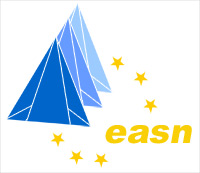 The EASN International Workshop, which for three days each year gathers a significant number of representatives from the European Industry, Academia and Research Community, will take place on the 2nd, 3rd and 4th of September 2015 at the premises of the University of Manchester, UK.
This major dissemination event, which aims to offer its participants a unique opportunity to network and interact among relative audience and to communicate the latest advancements, this time in the field of Aerostructures,
it is co - organized by the University of Manchester and the EASN Association and it is endorsed by the Royal Aeronautical Society.
The EASN International Workshop, which for three days each year gathers a significant number of representatives from the European Industry, Academia and Research Community, will take place on the 2nd, 3rd and 4th of September 2015 at the premises of the University of Manchester, UK.
This major dissemination event, which aims to offer its participants a unique opportunity to network and interact among relative audience and to communicate the latest advancements, this time in the field of Aerostructures,
it is co - organized by the University of Manchester and the EASN Association and it is endorsed by the Royal Aeronautical Society.
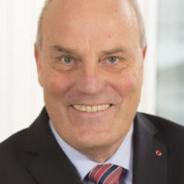 Peter F. Hartman, chairman of ACARE and Vice-Chairman Air France KLM, evaluates the ACARE goals and long-term strategy, appraises the potential role of Academia on realizing these goals, as well as expresses his views on the new set-up of the Horizon2020 Programme.
Peter F. Hartman, chairman of ACARE and Vice-Chairman Air France KLM, evaluates the ACARE goals and long-term strategy, appraises the potential role of Academia on realizing these goals, as well as expresses his views on the new set-up of the Horizon2020 Programme.
 The Consortium of the Promo – Air project is delighted to announce that the project’s final Workshop will be held on April 23, 2015 in Brussels, Belgium on the premises of the European Commission. Promo-Air is an initiative funded by the EC which aims to motivate and raise the interest of young Europeans in scientific and technical studies and careers related to aeronautics and air transport.
The objectives of the Promo – Air final Workshop are to inform the aeronautical stakeholders about the achievements of the Promo-Air initiative, present the lessons learned from the process of getting in contact with European high-school students and identify a roadmap towards additional actions and policies required for further stimulating young Europeans towards this aim.
The Consortium of the Promo – Air project is delighted to announce that the project’s final Workshop will be held on April 23, 2015 in Brussels, Belgium on the premises of the European Commission. Promo-Air is an initiative funded by the EC which aims to motivate and raise the interest of young Europeans in scientific and technical studies and careers related to aeronautics and air transport.
The objectives of the Promo – Air final Workshop are to inform the aeronautical stakeholders about the achievements of the Promo-Air initiative, present the lessons learned from the process of getting in contact with European high-school students and identify a roadmap towards additional actions and policies required for further stimulating young Europeans towards this aim.



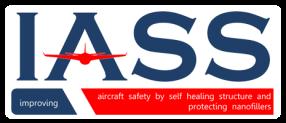 The IASS project is now well into its third and final year and all consortium members are now focused on achieving the overall project goals. All project activities are well on track, advancing seamlessly towards their completion.
The tests that are being performed and the models that are being developed aim at assessing the improved properties of the IASS project produced materials’ (electrical conductivity, impact damage resistance, flame resistance, self healing functionalities) as well as their behaviour under reality simulating conditions. The results of the aforementioned activities will determine the final modifications necessary for the selection and production of the nanofillers that are the most effective in realizing the overall aim of the project. The final results are expected to meet the requirements of the project’s concept, allowing for a successful conclusion of its activities.
For more information visit the
The IASS project is now well into its third and final year and all consortium members are now focused on achieving the overall project goals. All project activities are well on track, advancing seamlessly towards their completion.
The tests that are being performed and the models that are being developed aim at assessing the improved properties of the IASS project produced materials’ (electrical conductivity, impact damage resistance, flame resistance, self healing functionalities) as well as their behaviour under reality simulating conditions. The results of the aforementioned activities will determine the final modifications necessary for the selection and production of the nanofillers that are the most effective in realizing the overall aim of the project. The final results are expected to meet the requirements of the project’s concept, allowing for a successful conclusion of its activities.
For more information visit the 

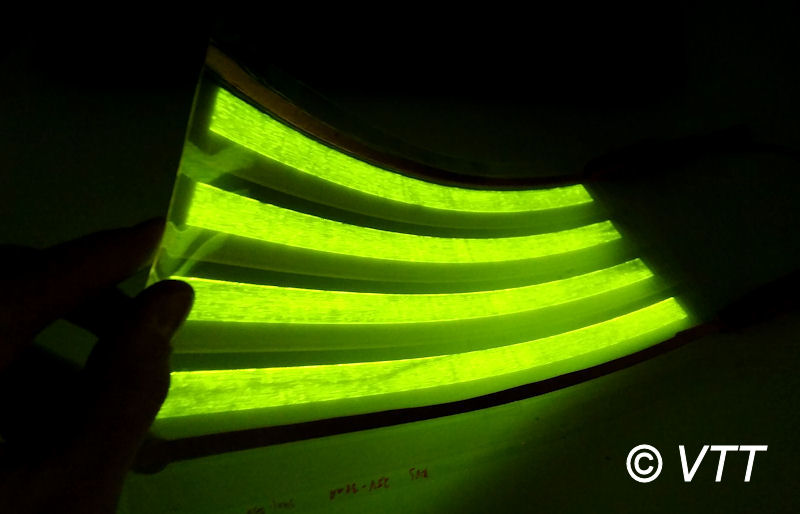
 While the intermediate reporting period has been officially approved, a set of parameters for deposition of cold sprayed Ti-6Al-4V coatings has been determined, leading to minimized porosity and increased hardness and deposition efficiency. Based on these, sets samples holding different geometries are being prepared towards determining the wear, fatigue, tensile and corrosion performance of these cold spray coatings.
Surface processing is also being investigated, in order to define the optimal set of parameters to further improve properties prior to the repair of real aeronautical components.
Modifications on the
While the intermediate reporting period has been officially approved, a set of parameters for deposition of cold sprayed Ti-6Al-4V coatings has been determined, leading to minimized porosity and increased hardness and deposition efficiency. Based on these, sets samples holding different geometries are being prepared towards determining the wear, fatigue, tensile and corrosion performance of these cold spray coatings.
Surface processing is also being investigated, in order to define the optimal set of parameters to further improve properties prior to the repair of real aeronautical components.
Modifications on the  Having completed the first half of its project duration, i-VISION’s overall activities are running as initially foreseen in the project roadmap. In the third and last phase of the project, detailed pilot cases and scenarios for conducting preliminary validations of intermediate technological prototypes are in the process of being defined by the industrial partners along with the support of research and application partners.
Having completed the first half of its project duration, i-VISION’s overall activities are running as initially foreseen in the project roadmap. In the third and last phase of the project, detailed pilot cases and scenarios for conducting preliminary validations of intermediate technological prototypes are in the process of being defined by the industrial partners along with the support of research and application partners.
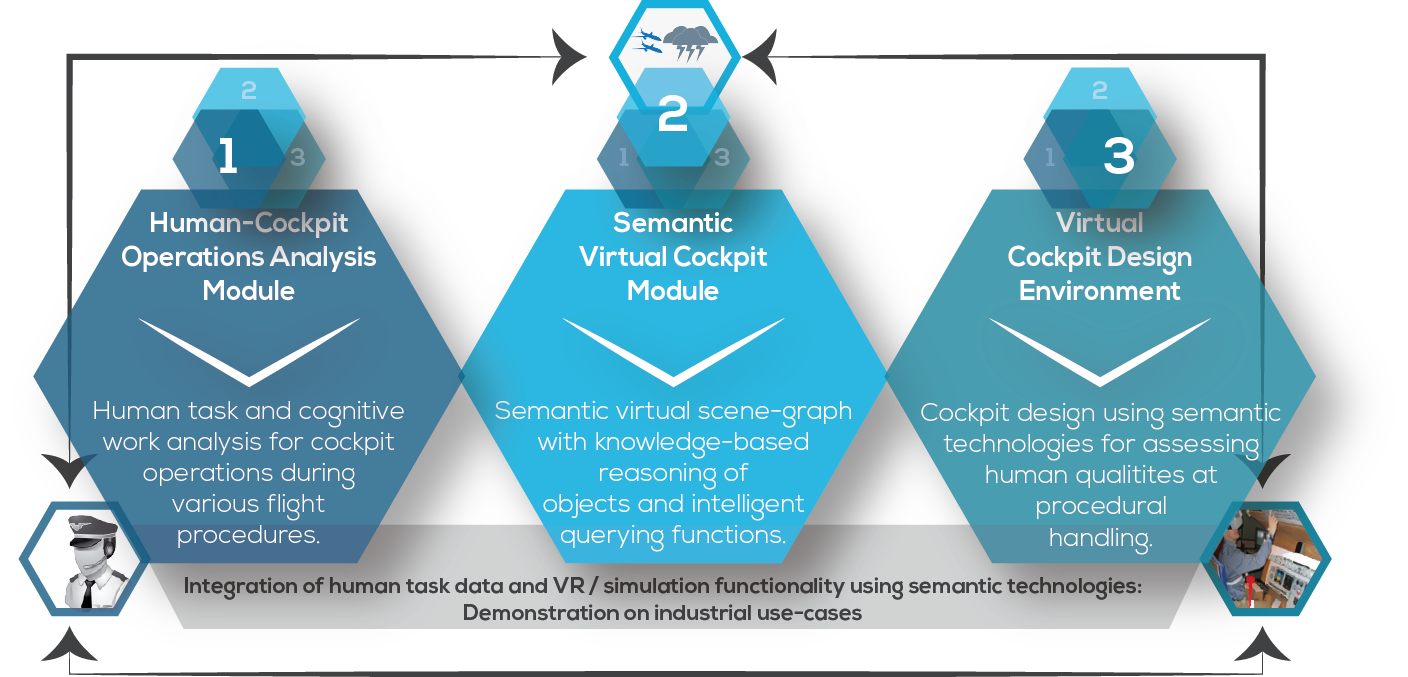
 Regarding small high volume parts methods evaluations based on Tomosynthesis as well as Helical CT have been presented. The goal here is to provide methods capable of multi-clip measurements which significantly reduce the time needed for scanning. Experiments were realized both in 2D and 3D. Furthermore defect detection techniques have been explored using a robot CT setup based on large industrial robots.
The software developed towards data analysis and interpretation of the generated results allows for a layer wise inspection of the underlying data.
Regarding small high volume parts methods evaluations based on Tomosynthesis as well as Helical CT have been presented. The goal here is to provide methods capable of multi-clip measurements which significantly reduce the time needed for scanning. Experiments were realized both in 2D and 3D. Furthermore defect detection techniques have been explored using a robot CT setup based on large industrial robots.
The software developed towards data analysis and interpretation of the generated results allows for a layer wise inspection of the underlying data.
 PERSEUS, which stands for “Promoting Excellence & Recognition Seal of European Aerospace UniversitieS”, successfully held its Kick-off Meeting on December 9th 2014 at the Department of Aerospace Science and Technology, Politecnico di Milano, Italy. The PERSEUS Coordination and Support Action, funded by the EC’s Horizon2020 Research & Innovation Programme, aims at firstly defining the evolving skill needs of the European aviation sector and subsequently at formulating strategic
recommendations and corrective measures for the improvement and harmonization of the content of the curricula for aviation engineers towards the ultimate creation of an integrated European aviation education system, based on sound quality criteria capable of supporting the continuous improvement of the educational system in the sector.
For more information please visit the
PERSEUS, which stands for “Promoting Excellence & Recognition Seal of European Aerospace UniversitieS”, successfully held its Kick-off Meeting on December 9th 2014 at the Department of Aerospace Science and Technology, Politecnico di Milano, Italy. The PERSEUS Coordination and Support Action, funded by the EC’s Horizon2020 Research & Innovation Programme, aims at firstly defining the evolving skill needs of the European aviation sector and subsequently at formulating strategic
recommendations and corrective measures for the improvement and harmonization of the content of the curricula for aviation engineers towards the ultimate creation of an integrated European aviation education system, based on sound quality criteria capable of supporting the continuous improvement of the educational system in the sector.
For more information please visit the  SUNJET II (SUstainable Network for Japan-Europe aerospace research and Technology cooperation II) initiated its activities with a very successful Europe-Japan Symposium on "Electrical Technologies for the Aviation of the Future". The two day symposium was held on 26-27 March 2015 in Tokyo and was hosted by the Delegation of the European Union to Japan. The symposium focused on the current status of the European and Japanese future trends of the electrical technologies for the aviation and gathered around 180 participants. A number of excellent presentations, which will soon be available on the
SUNJET II (SUstainable Network for Japan-Europe aerospace research and Technology cooperation II) initiated its activities with a very successful Europe-Japan Symposium on "Electrical Technologies for the Aviation of the Future". The two day symposium was held on 26-27 March 2015 in Tokyo and was hosted by the Delegation of the European Union to Japan. The symposium focused on the current status of the European and Japanese future trends of the electrical technologies for the aviation and gathered around 180 participants. A number of excellent presentations, which will soon be available on the  With 1,5 years of operations under its belt, the CATER Coordination and Support Action has reached several achievements. A dedicated Door-to-Door (D2D) model in daily journey has been established, thereby creating a common language and understanding for the theme of time efficiency. Moreover, through a very comprehensive analysis, the most relevant Research and Innovation domains connected to time efficiency have been found and have accordingly defined an R&I framework.
The developed Assessment Framework has been utilized to assess past and running (FP6 &FP7) EU-funded projects (63 so far), and leveraged to identify future evolutionary needs and opportunities.
With 1,5 years of operations under its belt, the CATER Coordination and Support Action has reached several achievements. A dedicated Door-to-Door (D2D) model in daily journey has been established, thereby creating a common language and understanding for the theme of time efficiency. Moreover, through a very comprehensive analysis, the most relevant Research and Innovation domains connected to time efficiency have been found and have accordingly defined an R&I framework.
The developed Assessment Framework has been utilized to assess past and running (FP6 &FP7) EU-funded projects (63 so far), and leveraged to identify future evolutionary needs and opportunities.
 Having completed its project duration, HIKARI held its final meeting from the 14th to the 15th of January 2014 in Suresnes, France. During this two day meeting, the very positive outputs achieved were presented and received enthusiastically by participants. This final meeting closed a successful period of project activities, yielding constructive feedback, which concluded that there is still room for further research on the crucial field of High Speed Transport (HST).
In the same time, the inclusion of a TV documentary in the Euronews channel has been produced, with regards to the research performed within HIKARI. The aim was to create a video, with which HST will gain awareness in in our daily life, allowing us to conceive it as a feasible scenario for our future by giving us the opportunity for example to fly from Paris to Tokyo in less than three hours! This TV documentary was aired in the
Having completed its project duration, HIKARI held its final meeting from the 14th to the 15th of January 2014 in Suresnes, France. During this two day meeting, the very positive outputs achieved were presented and received enthusiastically by participants. This final meeting closed a successful period of project activities, yielding constructive feedback, which concluded that there is still room for further research on the crucial field of High Speed Transport (HST).
In the same time, the inclusion of a TV documentary in the Euronews channel has been produced, with regards to the research performed within HIKARI. The aim was to create a video, with which HST will gain awareness in in our daily life, allowing us to conceive it as a feasible scenario for our future by giving us the opportunity for example to fly from Paris to Tokyo in less than three hours! This TV documentary was aired in the 
 The UMRIDA project aims at the improvement of Uncertainty Quantification (UQ) methods towards industrial readiness, focused on handling a large number of uncertainties (including geometrical ones), epistemic uncertainties, analysis of input uncertainties and methods for defining tolerances. The proposed methods are being validated and evaluated against selected test cases, towards the development of the UMRIDA Innovative database for UQ and Robust Design Management (RDM). Preliminary UQ results have been achieved for the Rotor 37 and the RAE2822 airfoil challenges, by taking into account a large number of
geometric and operational uncertainties. The results obtained will be presented in the upcoming
The UMRIDA project aims at the improvement of Uncertainty Quantification (UQ) methods towards industrial readiness, focused on handling a large number of uncertainties (including geometrical ones), epistemic uncertainties, analysis of input uncertainties and methods for defining tolerances. The proposed methods are being validated and evaluated against selected test cases, towards the development of the UMRIDA Innovative database for UQ and Robust Design Management (RDM). Preliminary UQ results have been achieved for the Rotor 37 and the RAE2822 airfoil challenges, by taking into account a large number of
geometric and operational uncertainties. The results obtained will be presented in the upcoming  SARISTU has completed the first half of its final year and is on the road to its Final Conference and Meeting to be held in May 2015 in Moscow, Russia. Some of the key highlights of this period include the delivery of the completed 5X4m Door Surround Structure with 584 co-bonded sensors from Invent to DLR’s Stade facility. Furthermore, the static test of the Enhanced Adaptive Droop Nose Ground Test Demonstrator successfully took place at VZLU.
SARISTU has completed the first half of its final year and is on the road to its Final Conference and Meeting to be held in May 2015 in Moscow, Russia. Some of the key highlights of this period include the delivery of the completed 5X4m Door Surround Structure with 584 co-bonded sensors from Invent to DLR’s Stade facility. Furthermore, the static test of the Enhanced Adaptive Droop Nose Ground Test Demonstrator successfully took place at VZLU.

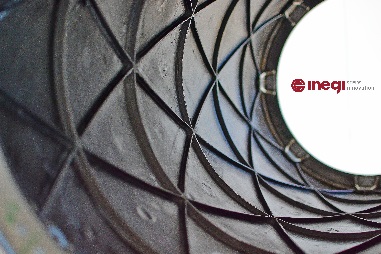 INEGI concluded single-step manufacturing demonstration for complete fuselage section
INEGI concluded single-step manufacturing demonstration for complete fuselage section
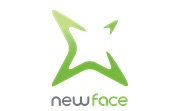 The
The 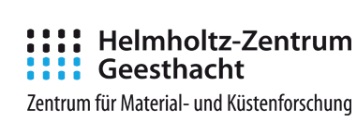 New Skin-Stringer Joining technology by Stationary Shoulder Friction Stir Welding. A complete assessment under static, dynamic and fracture mechanics points of view is going to be performed to evaluate the possibility of a new joining technology for skin-stringer T-joint configuration.
The main goal is the applicability in fuselage part of new generation aircraft, leading to a considerable weight reduction and lower manufacture costs with an higher automation.
For more information please click
New Skin-Stringer Joining technology by Stationary Shoulder Friction Stir Welding. A complete assessment under static, dynamic and fracture mechanics points of view is going to be performed to evaluate the possibility of a new joining technology for skin-stringer T-joint configuration.
The main goal is the applicability in fuselage part of new generation aircraft, leading to a considerable weight reduction and lower manufacture costs with an higher automation.
For more information please click  The Translation for Massive Open Online Courses (TraMOOC) project is a Horizon 2020 collaborative project aiming at providing reliable machine translation for Massive Open Online Courses (MOOCs). Coordinated by the Humboldt-Universität zu Berlin, it brings together 10 partners from 6 European countries with wide experience in their field, allowing for an unhindered course towards achieving the project’s goals.
The Translation for Massive Open Online Courses (TraMOOC) project is a Horizon 2020 collaborative project aiming at providing reliable machine translation for Massive Open Online Courses (MOOCs). Coordinated by the Humboldt-Universität zu Berlin, it brings together 10 partners from 6 European countries with wide experience in their field, allowing for an unhindered course towards achieving the project’s goals.
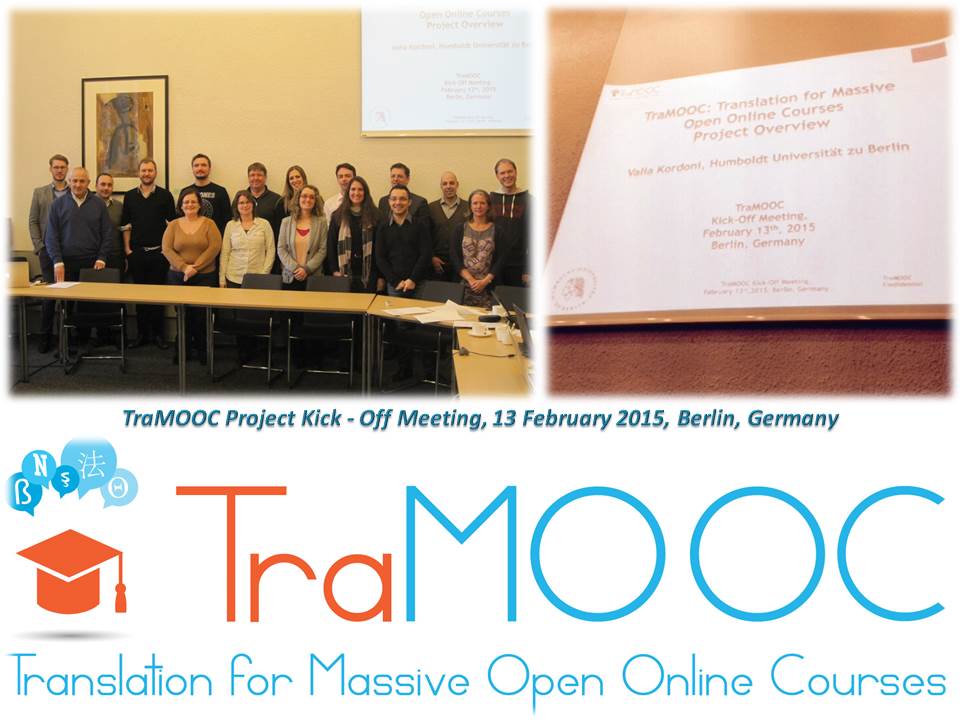


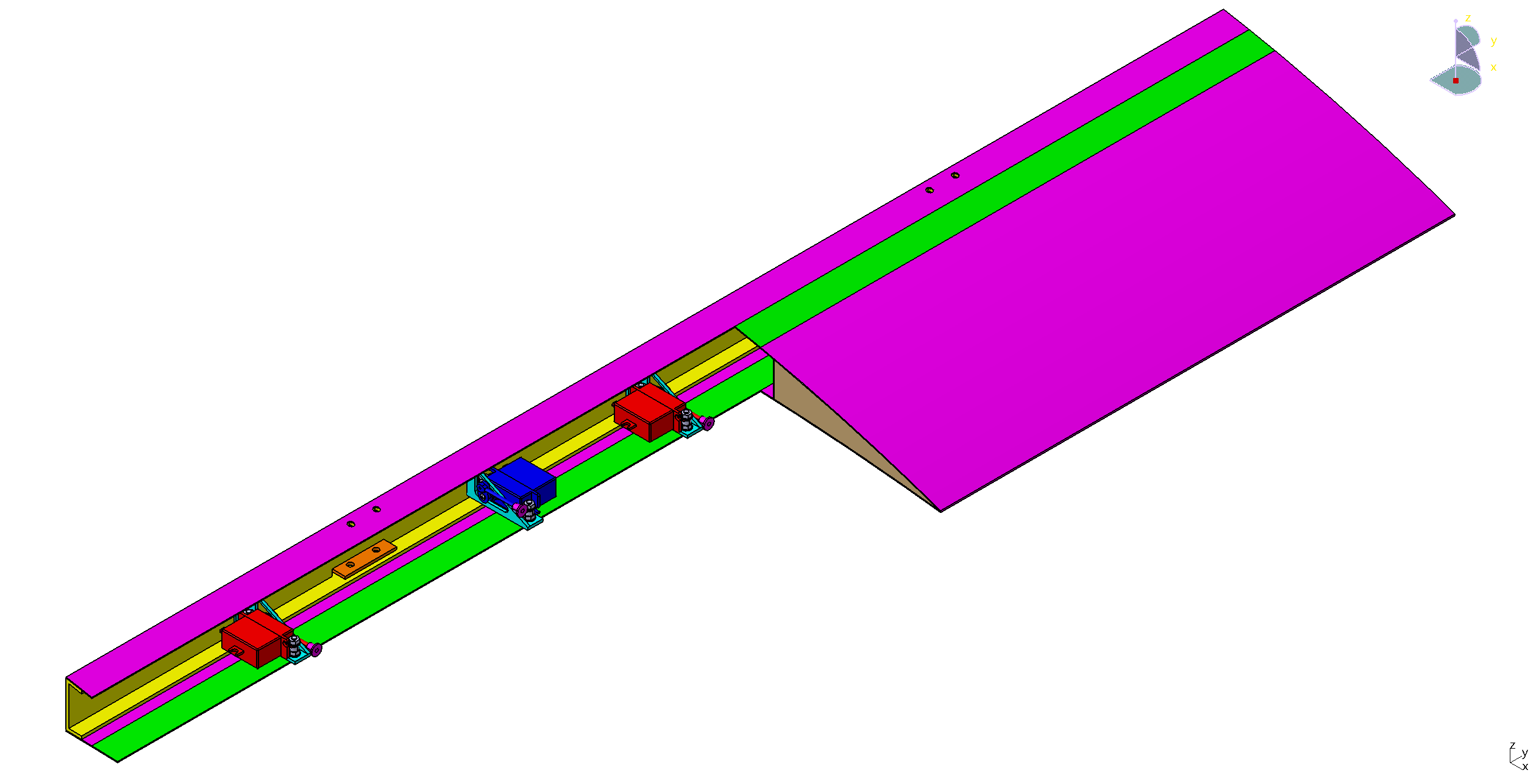 A novel hybrid trailing edge control surface composed of three different materials, having the ability to perform camber and decamber morphing, was designed in
A novel hybrid trailing edge control surface composed of three different materials, having the ability to perform camber and decamber morphing, was designed in 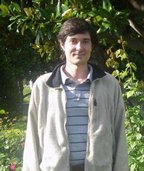 Research and Academic Collaboration in Industrial Aircraft Design
Research and Academic Collaboration in Industrial Aircraft Design